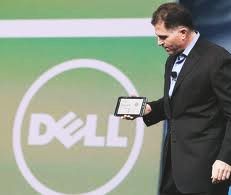Reports: Dell Buyout Could Come Monday

Negotiations over the future of Dell continued over the weekend, with a buyout deal possibly coming as soon as Monday, according to reports
Dell’s much-discussed deal to go private could come as early as 4 February, with founder and chief executive Michael Dell taking majority ownership of his namesake company and Microsoft and equity firm Silver Lake Partners taking minority stakes, according to reports.
The deal, which reportedly now involves financing from four banks, could bring the value of the company to between $22.6 billion (£14.4bn) to $24.4 billion, at $13 to $14 per share, according to Reuters.
Continuing negotiations
All sides were still negotiating over the weekend, and the timetable could slip, unnamed sources told Reuters. Should the deal go through, it reportedly would be the largest leveraged buyout since the global recession in 2008.
 Speculation that Dell would go private has been rampant since early January, when reports first began circulating.
Speculation that Dell would go private has been rampant since early January, when reports first began circulating.
Dell, the world’s third-largest PC maker, is in the midst of a multi-year transformation from being primarily a PC and server maker to being an enterprise IT solutions vendor, offering data centre infrastructure – from servers to storage to networking – as well as software and services.
The company, like most that are tightly tied to the PC industry, has been hurt in recent years by the declining sales of PCs worldwide, as consumers turn their attention to such mobile computing devices as smartphones and tablets.
PC shipments in the fourth quarter of 2012 fell 4.9 percent from the same period in 2011, according to Gartner analysts. Dell PC shipments during that time dropped 20.9 percent.
Transformation
Becoming a private company would enable Dell executives to accelerate their efforts to transform the company and make difficult decisions outside of the glare of Wall Street and financial analysts, according to industry observers.
“It allows the company to function with the agility of a startup and most of the resources of a large public company,” Rob Enderle, principle analyst of the Enderle Group, told eWEEK in January. “In effect, if you are contemplating making some major structural changes to the company, this is like, in a car race, pulling the car off the track to do the heavy modifications, rather than trying to do those changes during a pit stop or while the car was actually racing.”
Dell officials had been in discussions with Silver Lake until Microsoft joined the negotiations in mid-January, willing to put in as much as $3 billion, according to reports.
Investing in Dell would make sense for the giant software vendor, given the historically close ties between the two companies and their shared interest in bringing the PC market back to health.
Microsoft has seen brisk sales of its new Windows 8 operating system, but the OS has not been able to revitalise the PC market.
Big data moves
There also are other advantages for Microsoft, with some industry observers noting Dell’s efforts in the cloud, virtualisation and big data, all areas that are of interest to Microsoft as well.
Some reports indicated that Microsoft’s involvement in the deal had created a snag in earlier negotiations, with the scope of the software company’s involvement in Dell affairs being discussed.
According to Reuters, the investment group has gotten up to $15 billion in financing from Barclays, Bank of America Merrill Lynch, Credite Suisse and RBC Capital.
Michael Dell, who already owns 15.7 percent of the company, could contribute as much as another $1 billion of his own personal funds to ensure he retains control of the PC maker.
The company’s board of directors has created a special committee and hired Evercore Partners to advise it, ensuring that whatever deal is made is in the best interests of shareholders.
Undervalued?
However, not all people see the price being discussed as good for shareholders. In a column on the Live Trading News site on3 February, Shayne Heffernan, an investment adviser, said that the $13- to $14-per-share price being quoted in reports undervalues the company, and should be rejected by Dell shareholders.
“In fact any buyout offer under $20 a share should be immediately dismissed by shareholders,” Heffernan wrote. “Furthermore, any and all groups associated with Michael Dell should be prohibited from voting on the sale at such a low valuation. They should also be now raising questions about the amount of influence Michael Dell exerts over the company remembering his current shareholding is fairly low.”
Do you know all about HP, the IT firm from the garage? Take our quiz!
Originally published on eWeek.